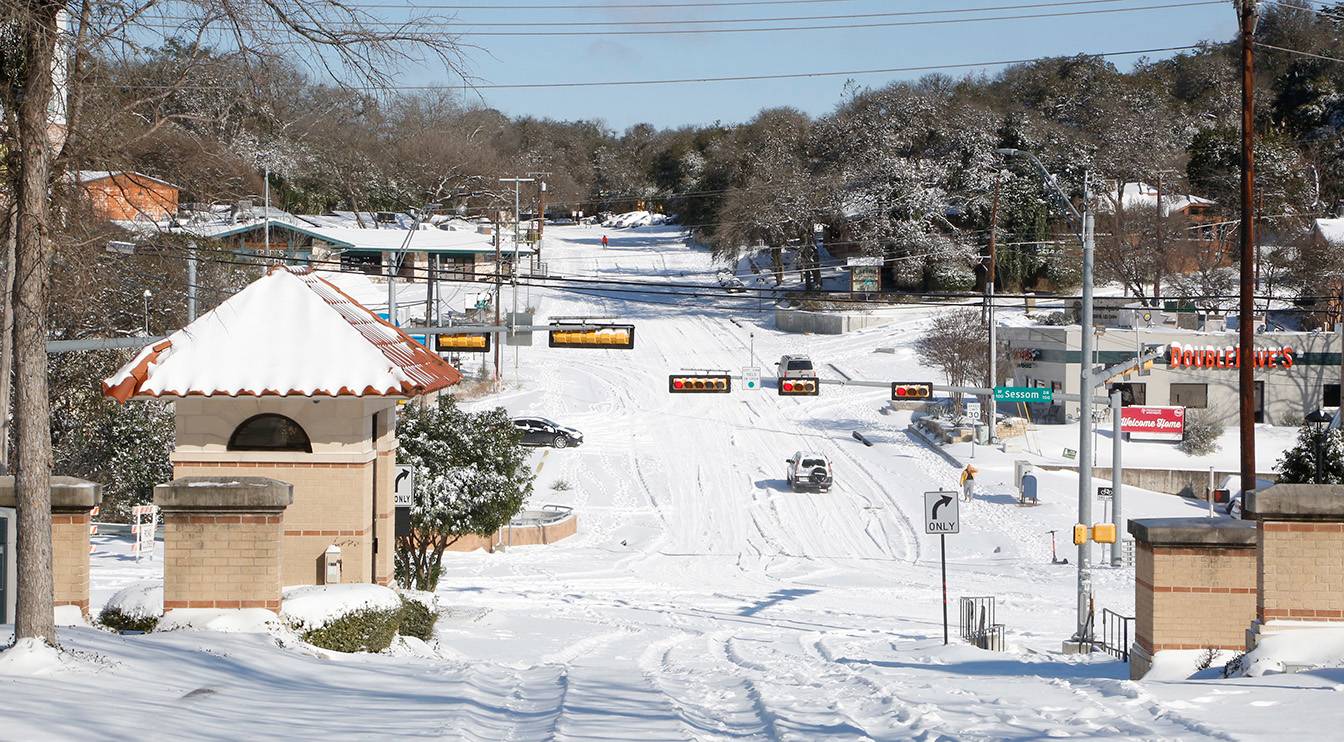Matt Joyce | March 7, 2023


Dr. Shinwoo Choi, assistant professor in Texas State University’s School of Social Work, has been selected by the National Center for Atmospheric Research for its Early Career Faculty Innovator Program, funded by the National Science Foundation. Choi will work with NCAR scientists to study Winter Storm Uri’s impacts on marginalized communities in Texas and recommend ways to strengthen the resiliency of urban and rural communities for future weather disasters.
Working with three NCAR scientists, Choi is embarking on a two-year interdisciplinary study titled “Climate Change, Infrastructure Disruption, and Extreme Weather Resilience: Cases of Environmental Justice Communities in Texas.”
Choi has been researching the experiences of vulnerable communities during natural disasters since her family weathered Hurricane Matthew in Florida in 2016. Shortly after her family moved to Texas, they experienced Winter Storm Uri, the February 2021 deep freeze remembered for knocking out power across the state.
Choi and her family relied on their social networks and a few hotel nights to navigate the storms, but the disruptions prompted questions for Choi. “Because my discipline is social work, it made me think,” she said. “What about our vulnerable populations? What about empowering vulnerable populations and increasing their resiliency?”
The NCAR grant provides $362,000 for Choi to conduct research about the impact of the 2021 storm through an interdisciplinary lens comprising big data, social science, and meteorology.
“A primary goal of the Innovator Program is to address complex research problems by building partnerships between NCAR scientists and early-career faculty,” said Dr. Alexandra Ramos Valle, coordinator of the Early Career Faculty Innovator Program and a project scientist. “Dr. Choi’s proposed project addresses multiple scientific objectives of the Innovator Program, including the reduction of damage and disruption to infrastructure from weather hazards, environmental justice research on the effects of weather hazards on marginalized communities, and the application of machine learning.”
The research team aims to produce articles for scholarly journals as well as practical resources for vulnerable populations across Texas. Community feedback will shape those resources, which could be informative workshops, websites, or other ideas, Choi said.
“Whatever the form will be, we want the results to be used for better preparedness,” she said. “Whether analyzing big data or interviewing community members, the end goal is better preparedness and better disaster resilience.”
The study will focus on six Texas Environmental Justice communities and analyze the differences between rural and urban areas. The rural counties are Titus, Navarro, and Maverick; the metro counties are El Paso, Dallas, and Harris. Choi said the counties could change depending on feasibility.
The study is composed of three interdisciplinary sections. The first is an assessment of data provided by Twitter to analyze spatiotemporal tweeting patterns. The team will filter the database for keywords such as “#poweroutage.” The researchers will try to determine where people felt the impacts of infrastructure disruption the most.
A second section calls on Choi’s social work expertise. Her team will conduct focus groups, surveys, and interviews with community members and leaders. They’ll be looking for insights into questions related to the communities’ perceptions of unmet needs, their preparedness for future disasters, their available resources, and their coping strategies.
A third section will produce a historical and future analysis of winter weather in Texas. Meteorologists at NCAR will create modeling to predict the likelihood of future winter storms in Texas.
“We will assess the chance of similar events occurring given future changes in extreme weather and climate change,” said Dr. Curtis Walker, an NCAR scientist and project collaborator. “This joint information can in turn allow community leaders and policymakers to prioritize resources and infrastructure accordingly for these communities under a range of future scenarios. Moreover, this work can serve as a foundational framework nationally and internationally.”
With the grant funds, Choi will hire a graduate research assistant and three to four undergraduate research assistants; and she will make trips to NCAR in Boulder, Colorado, to meet with project collaborators.
“It’s a huge learning experience for me as well,” Choi said. “This grant has a heavy emphasis on training — training me to be [NCAR’s] collaborator. I will meet with the other grant recipients and other NCAR scientists. It will be great to expand my horizons and collaborate with them on other federal grant proposals such as Environmental Protection Agency or other NSF funding opportunities.”
Share this article
For more information, contact University Communications:Jayme Blaschke, 512-245-2555 Sandy Pantlik, 512-245-2922 |
